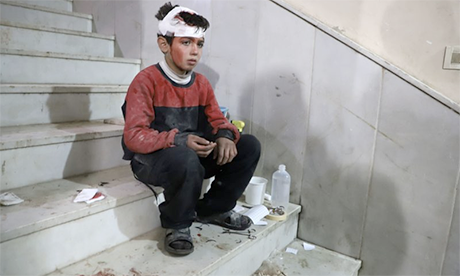The war in Syria is by no means over, but it rather carrying on under the radar of the usual barrage of news stories we prefer to read about.
In the last week or so, the Assad regime is dealing with the last remaining rebel enclave near Damascus, Eastern Ghouta.
This enclave has a population of over 300,000 people, and is slowly being reduced by starvation and indiscriminate bombing.
These were the same methods used to reduce other rebel-held territories such as Eastern Aleppo.
The outlook for people in Eastern Ghouta does not look good.
But even though Mr Assad may win the war in Eastern Ghouta, it is unlikely that he will ever be able to reassert full control over the whole of Syria, given the fact that his army, even with his foreign allies, is simply not big enough to do so.
The truth is that Mr Assad is still in power thanks to two things.
- The failure of the West to intervene decisively against him (a failure in which even the Vatican played a part.)
- The military assistance from Russia, Hizbollah and Iran. If these allies were to desert him, he would not last long.
At the close of last year, Iran seemed to be on the brink of revolution, a real revolution which would have undone the one that overthrew the Shah.
The widespread protests, which now seem to have stopped, were sparked by economic discontents and the rise in the cost of basic foodstuffs, a familiar phenomenon in the history of revolutions.
The people were also protesting about the way the regime was spending lots of money propping up Assad, and interfering in Yemen and Lebanon, while not looking after its own people.
If (and it is a huge if) these protests start again (and the basic discontents have not gone away), and if there is regime change in Tehran, then the client government in Damascus would be doomed. Continue reading
Additional readingNews category: Features.




